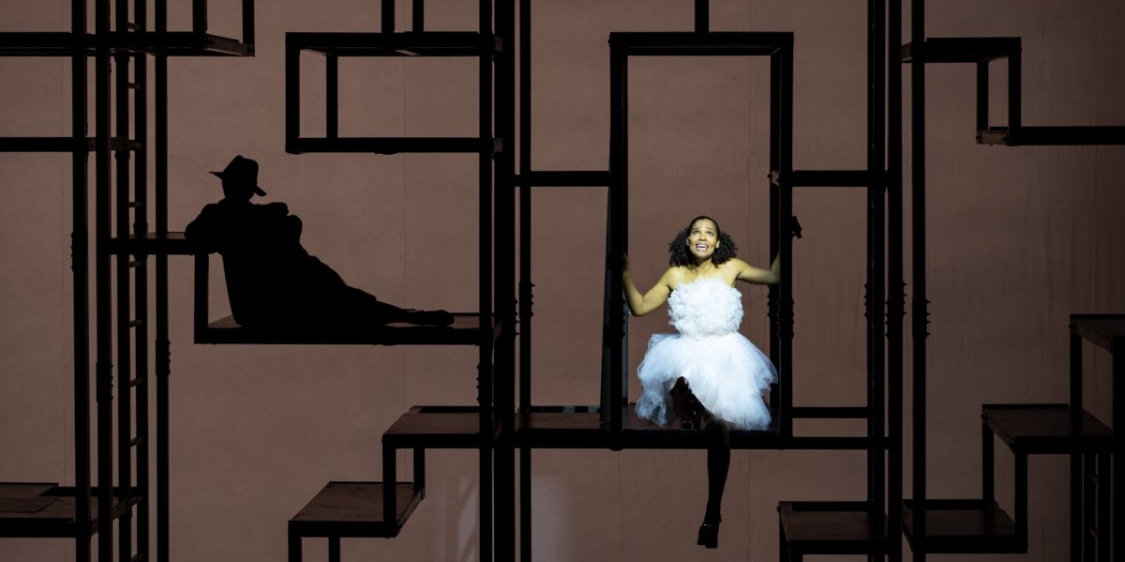The Berliner Ensemble’s The Threepenny Opera opens with a personification of the moon singing ‘The Ballad of Mack the Knife’, the song’s gruesome lyrics about a vicious killer contrasting sharply with the singer’s sparkly make-up and the glitzy curtain which shields the stage. This destabilising contrast persists throughout, as cheery comedy and decadent Weimar costumes provide a thin veneer for tales of abuse, murder and general criminality. There is more than a hint of Cabaret about proceedings.
Happily, the pitch of the production ensures such clashes are effectively chuckle- rather than cringe-inducing, perhaps no surprise given the Berliner Ensemble’s founding by The Threepenny Opera’s writer, Bertolt Brecht. Infrequent audience participation and some judicious breaking of the fourth wall by the actors brings the requisite awareness of ‘performance’ needed to make Brecht’s theatre work, as does the obvious appearance of stage hands and other theatrical workings.
However, most successful is the play’s staging, as the actors clamber on, around and through six Escher-esque constructions which call to mind Gotham, the urban canyons of Bladerunner or perhaps even the nearby Edinburgh tenements. In their impersonal functionality, the bleak angular forms create a sense of loneliness and despair quite in keeping with the play’s cynical world view.
They function as stables, windows from which prostitutes flaunt their wares and stages for performance. Later, stage designer Rebecca Ringst makes full use of the Festival Theatre’s cavernous performance space, as the structures recede towards the back wall to make a prison for the play’s central character, villainous Macheath.
Gabriel Schneider’s sinewy rendition of Macheath – the appealing moral vacuum at the heart of the play – is a triumph. His pale face with its black-rimmed eyes switches easily from glee to viciousness and back. Completely in sync with Kurt Weill’s music, he sways sensuously with all the magnetic and lethal charm of a cobra.
Schneider’s chemistry with Kathrin Wehlisch’s squeaky, cartoonish Jackie Brown is intense, selling their relationship as one of the few genuine human connections in the story. Alongside them, Tilo Nest brings a certain old-school suavity to his Jonathan Peachum, while Cynthia Micas sparkles as his daughter Polly.
If there is anything to criticise, the heavy reliance on amplification – verging on sounding pre-recorded at times – has the unfortunate effect of rendering much of the singing flat and directionless. Much of the vocal nuance is lost, and the vigorous staging causes at least one microphone to come loose and muffle its speaker.
Pulling off the delicate balancing act required to make Brecht’s mix of dark drama and comedy work effectively is no mean feat, and poor performances are easy to come by. Happily, this funny, sexy, pitch-black production is a distinct success, bringing the text and music to life and satisfying the competing needs of light and dark with panache. The audience might not head away into the Edinburgh evening with a very high opinion of humanity, but they certainly leave entertained.

